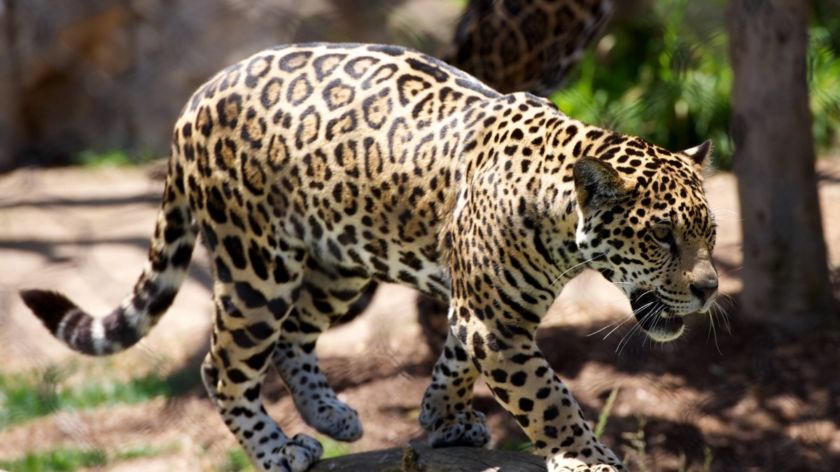Hunting leads to fewer and fewer jungle animals
-
 Foto: pxhere (Creative Commons)
Foto: pxhere (Creative Commons)
In more than half of the world’s tropical forests, hunters are causing a drastic reduction in the numbers of mammals, sometimes by 70 percent or more. This is the conclusion reached by Nijmegen environmentalists led by Ana Benítez-López, based on new research.
Many rural residents in the tropics are dependent for their food on hunting. Several years ago, Benítez-López showed in the prestigious Science magazine that because of this, animal populations around villages and roads were coming under pressure. This week, in a sequel to that article, now in PLoS Biology, she shows which places in the Asian, African and South American tropics have more problems with hunting, and which fewer.

For example, there are areas in West Africa where the numbers of mammals are currently 70 percent lower than 40 years ago. Large animals such as tapirs, apes and elephants are particularly affected, because they take longer to reproduce. “If one individual animal disappears because of hunting, their population recovers more slowly than when the same thing happens to smaller animal species”, explains Benítez-López on the telephone from her current workplace in Sevilla.
She points out that the simple fact is that large animals bring in more money. At local markets, for their meat, and also in trade. “Certain scaled animals and rhinoceroses, for example, are very popular for making traditional Chinese medicine.”
The ecologist did not actually keep scores of animals on location. The numbers are estimates, predicted by cleverly combining existing data in literature and other sources. For example, the world food organisation FAO has worldwide data on poverty, NASA has information about population densities and Open Street Map (a kind of Google Maps) shows where there are many villages. “That way, you can effectively chart where local hunters are probably to be found.” The hotspots? In West Africa, indeed, with its population of millions.
Biodiversity estimated over-optimistically
Benítez-López’ predictions show that animal populations can even come under pressure in places where there is absolutely no deforestation – traditionally the ultimate signal for researchers and policy-makers of places where fewer animals might be. The biodiversity data they use might therefore be too optimistic, since it does not take into consideration a fall in numbers due to hunting.
The Spanish researcher is cautious about offering solutions to the excessive hunting. “I’m not a social scientist. But government could make sure that people become less dependent on hunting.” That could be through better education, for example, and making sure they introduce more variety into their diets. They could perhaps raise livestock, grow protein-rich vegetables or hunt smaller animals. “Apart from all that, the problem of illegal poaching needs to be tackled much more seriously.”



